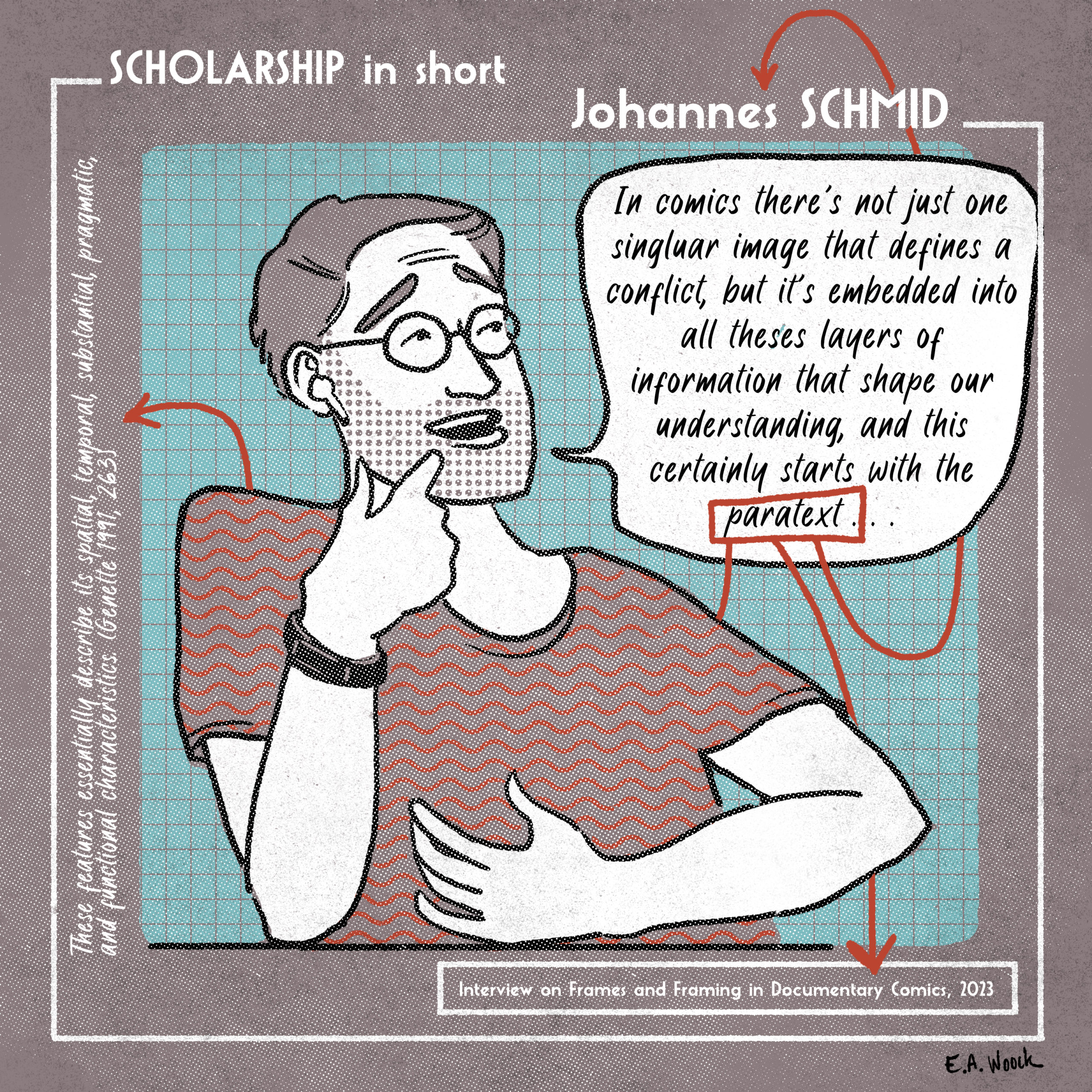Dr. Schmid talks about how war photography led him to documentary comics, dives deeper into the role of the author, and speaks about the issues to consider when consuming documentary comics in the mainstream.
Listen to more
The interview audio is available here at the New Books Network podcast.
What we talked about
Building on a statement from his book – ‘cartoonists may choose not only what they draw but how they draw’ – he talks how this complicates the ‘documentary’ mode of these comics.
Talking to Sarah Glidden and Joe Sacco directly, and how those connections changed his thinking on the subject.
Elaborates on the claim: “The unique feat of documentary comics is their capacity to unravel and yet patently employ framing practices to challenge the political status quo and medial conventions that perpetuate it.”
Dr. Schmid explains how ‘individual moments in comics often overflow dynamically’ forming a new whole.
He explains what paratext is and why its special in documentary comics.
With the exponential rise in popularity of documentary comics and journalistic comics, Dr. Schmid talks about what he would like the wider public to be aware of when reading these works?
About the scholar
Dr. Johannes Schmid is a postdoctoral researcher at Europa-Universität Flensburg, Germany, and associate editor at American Studies: A Quarterly, the official journal of the German Society for American Studies (GAAS). His other recent publications include Shooting Pictures, Drawing Blood: The Photographic Image in the Graphic War Memoir (2016).
About the book
- Investigates documentary comics in its unique relationship to framing
- Combines theories of framing analysis and cognitive narratology with comics studies and its attention toward the medium’s visual frames
- Challenges and expands conventional notions of documentary, engaging in a broader discussion on facts and journalism in the current age of fake news and post-truth politics

